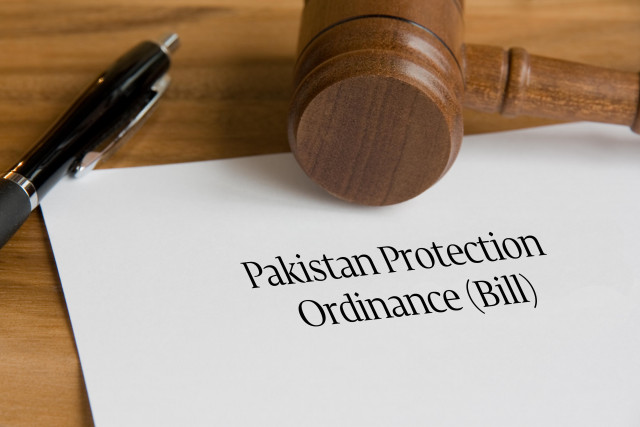Security versus rights: ‘PPO legalises enforced disappearances’
Lawyers, human rights activists, lawmakers discuss pros and cons of the law.

The PPO was approved by President Mamnoon Hussain on October 20, 2013 and passed by the National Assembly on April 7. PHOTO: CREATIVE COMMON
Section 3 of the Protection of Pakistan Ordinance (PPO) sanctions unreasonable powers to enter and search without a warrant, which is a violation of the right to privacy, lawyer and human rights activist Aliya Khan told The Express Tribune on Wednesday.
The PPO was approved by President Mamnoon Hussain on October 20, 2013 and passed by the National Assembly on April 7. It still requires approval from the Senate.
A resolution to extend the PPO for 120 days was passed in the National Assembly on May 14. Minister for Science and Technology Zahid Hamid presented the resolution in the lower house. He said human rights were not being violated by the new ordinance, and the government would have the ordinance approved through legal channels.
Khan said Section 6 of the PPO authorised preventive detention, which was against the fundamental right to liberty according to Article 9 of the Constitution. She said the PPO was legalising enforced disappearances by security agencies.
Yasmeen Aftab Ali, a lawyer, academic and political analyst told The Express Tribune that all laws must be seen in their political context. Exceptional circumstances had led to the creation of exceptional laws, she said.
She said that some people had condemned the PPO because it allowed security forces’ personnel to make arrests and conduct raids. She said this provision was not unconditional and under Section 3(C) it was only applicable to those had committed or were ‘likely’ to commit scheduled offences under reasonable suspicion or based on credible information. Ali said it was not based on the whim of a police or security forces’ personnel.
Activist Mobeen Ahmed Chughtai said “The power given to the enforcement authorities under the proposed law does not ensure accountability.” He said the law enforcement agencies could arrest without warrant, detain without declaration or production of a suspect before a magistrate, or shoot on ‘personal initiative or suspicion’.
Chughtai said Pakistan was suffering from widespread terrorism, which needed to be tackled with an iron hand. Such laws, however, could and frequently were used to the detriment of the citizens they were meant to protect. Further, he said, certain statements within the law emphasise the importance of protecting ‘select groups’. Chughtai said this was particularly problematic.
He said major accountability imperatives should be introduced in the PPO. He said orders to shoot at sight, without prior declaration of a national, provincial or district emergency, must always be considered illegal. He added that security forces’ personnel must not be given a carte blanche over who lives and dies.
Maiza Hameed, National Assembly member from the Pakistan Muslim League-Nawaz, said the government was open to recommendations from all stakeholders and no law would be passed that was against basic human rights.
She said Prime Minister Nawaz Sharif had said the legislation must be agreed upon unanimously, and therefore amendments to the ordinance had been sent to the Standing Committee.
Published in The Express Tribune, May 22nd, 2014.


















COMMENTS
Comments are moderated and generally will be posted if they are on-topic and not abusive.
For more information, please see our Comments FAQ